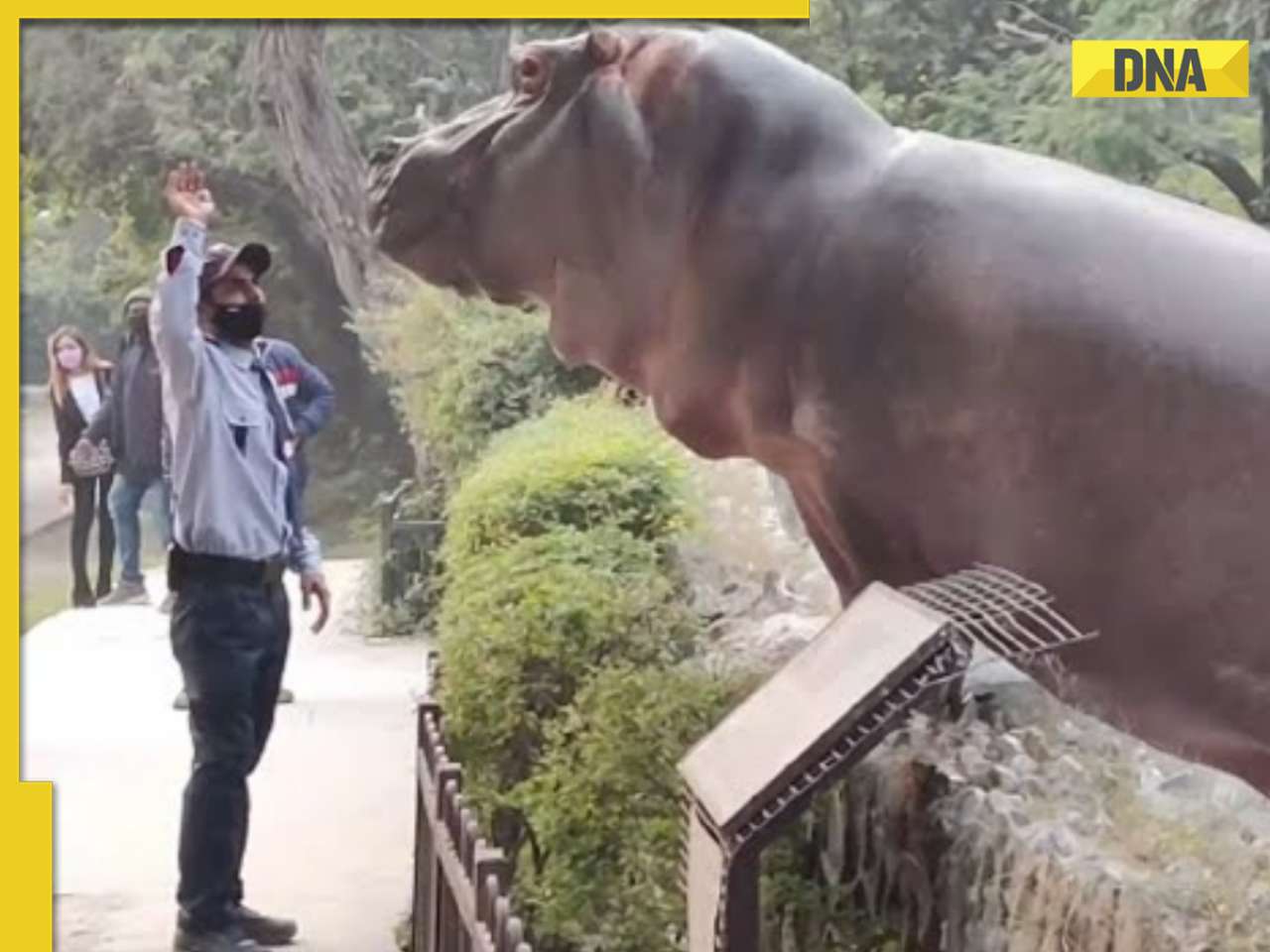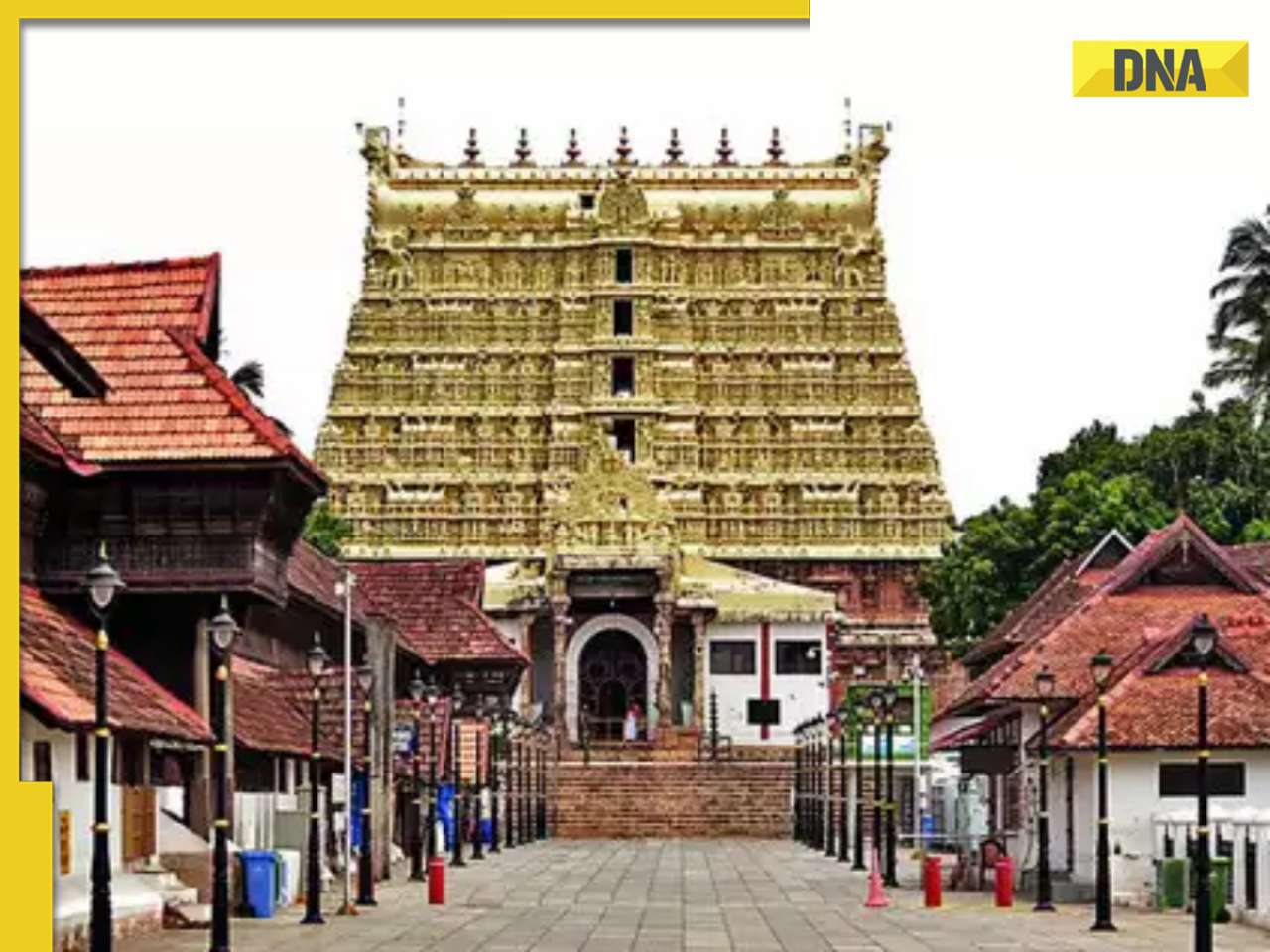Nanjie village in Henan province in central China, which was showcased for over a decade as a modern-day symbol of Chairman Mao’s dream of socialist utopia.
A showcase socialist ‘Animal Farm’ is exposed as a multi-million-dollar myth
HONG KONG: One of the last outposts of Communism in China, a village whose 3,500 residents lived in a Mao Zedong-era time warp, has gone belly-up, and is being dragged kicking and screaming to the free market, which other parts of China embraced exactly 30 years ago.
Nanjie village in Henan province in central China, which was showcased for over a decade as a modern-day symbol of Chairman Mao’s dream of socialist utopia and an “economic miracle” where the collective spirit prevails, has today been pushed deep into bankruptcy.
Its critics now say that the mountain of debt it is buried under reflects the price of dolling up a fraudulent Orwellian ‘Animal Farm’, with its veneer of “equality” hiding a sordid tale of corruption and ideological posturing. In Nanjie’s heyday, life in the pseudo-socialist bubble drew truckloads of admirers, who came to gaze in wonderment at residents who lived in the cocoon of a ‘commune’, singing revolutionary songs and chanting Mao slogans.
In an era where social safety nets disappeared all across China, which embraced the market economy under Deng Xiaoping and successive leaders, Nanjie stood out because everything in the village was collectively owned and everyone enjoyed cradle-to-grave welfare.
True, everyone in the village, including the village head, drew only a small honourarium, but residents enjoyed free food, housing, healthcare, schooling and even free weddings and funerals.
Home to some agricultural and food processing industries, Nanjie came to be known as the ‘wealthiest village’ in Henan province, and its economic model became the subject of research by scholars the world over.
In particular, there was an eagerness to understand how Nanjie overcame the “free-rider problem” — where the security of a safety net and the absence of incentives to perform may lead some workers to shirk their responsibility to the collective.
Cui Zhiyuan, an Associate Professor of Political Science at the Massachusetts Institute of Technology, concluded after a game theory study that Nanjie’s experience “demonstrates that the free-rider problem can be overcome” in a collective economy.
But it now turns out that Nanjie wasn’t an “economic miracle” so much as a house of cards built with a limitless credit line from state-owned banks as part of an elaborate effort to showcase the “correctness of the Mao Zedong Thought”.
In particular, after the 1989 Tiananmen Massacre, an ideological battle broke out in Beijing between reformists and conservatives within the Communist Party. Nanjie, which was a shining symbol of Maoist principles at work, was actively cultivated by the conservative faction and given virtually limitless access to funds from the Agricultural Bank of China.
Feng Shizeng, an associate professor in sociology at Beijing’s Renmin University, says Nanjie’s supernormal growth was a result not of “efficient capital accumulation but of excessive reliance on bank loans, put to inefficient use”. Worse, when the village head, who drew the same honourarium as everyone else in the village, died in 2003, over $2 million in cash — and documents listing several property in his name — were recovered from his safe. Clearly, in this Animal Farm, some were more equal than others.
Today, Nanjie finds itself saddled with a 1.7 billion yuan ($250 million) debt; with the Agricultural Bank of China now preparing to list its shares, it is calling in its outstanding debts. The official newspaper Wen Wei Po calculated recently that it would take Nanjie over 200 years to repay the debt.
Faced with this mountain of debt, the village committee has now reluctantly embarked on a privatisation effort. On the 30th anniversary of China’s embarking on economic reforms, its last Communist outpost has bowed to the gale winds of market forces.
![submenu-img]() This film made Dharmendra star, was originally offered to Sunil Dutt, actor suffered near-death injury, movie earned...
This film made Dharmendra star, was originally offered to Sunil Dutt, actor suffered near-death injury, movie earned...![submenu-img]() Sumatra Slim Belly Tonic Scam (Tested For 90 Days) Does This Blue Tonic Supplement Work For Weight Loss?
Sumatra Slim Belly Tonic Scam (Tested For 90 Days) Does This Blue Tonic Supplement Work For Weight Loss?![submenu-img]() Sugar Defender Scam (60 Days Of Testing) What Users Are Saying About This Blood Sugar Support Formula
Sugar Defender Scam (60 Days Of Testing) What Users Are Saying About This Blood Sugar Support Formula![submenu-img]() FitSpresso Scam (I've Used It For 180 Days) Are These Weight Loss Pills Effective?
FitSpresso Scam (I've Used It For 180 Days) Are These Weight Loss Pills Effective?![submenu-img]() Understanding Legal Entity Identifiers: The Advantages and Benefits
Understanding Legal Entity Identifiers: The Advantages and Benefits![submenu-img]() Meet man who almost failed in class 12, IIT alumnus, who quit high-paying job at Infosys for UPSC exam, secured AIR...
Meet man who almost failed in class 12, IIT alumnus, who quit high-paying job at Infosys for UPSC exam, secured AIR...![submenu-img]() Meghalaya Board 10th, 12th Result 2024: MBOSE SSLC, HSSLC Arts results to be declared on this date
Meghalaya Board 10th, 12th Result 2024: MBOSE SSLC, HSSLC Arts results to be declared on this date![submenu-img]() Campus placement: Over 7700 students of IIT 2024 batch yet to get jobs, finds RTI
Campus placement: Over 7700 students of IIT 2024 batch yet to get jobs, finds RTI![submenu-img]() IIT-JEE topper joins IIT Bombay with AIR 1, skips placement drive, now working as a...
IIT-JEE topper joins IIT Bombay with AIR 1, skips placement drive, now working as a...![submenu-img]() IIT graduate builds Rs 1057990000000 company, leaves to get a job, now working as a….
IIT graduate builds Rs 1057990000000 company, leaves to get a job, now working as a….![submenu-img]() DNA Verified: Is CAA an anti-Muslim law? Centre terms news report as 'misleading'
DNA Verified: Is CAA an anti-Muslim law? Centre terms news report as 'misleading'![submenu-img]() DNA Verified: Lok Sabha Elections 2024 to be held on April 19? Know truth behind viral message
DNA Verified: Lok Sabha Elections 2024 to be held on April 19? Know truth behind viral message![submenu-img]() DNA Verified: Modi govt giving students free laptops under 'One Student One Laptop' scheme? Know truth here
DNA Verified: Modi govt giving students free laptops under 'One Student One Laptop' scheme? Know truth here![submenu-img]() DNA Verified: Shah Rukh Khan denies reports of his role in release of India's naval officers from Qatar
DNA Verified: Shah Rukh Khan denies reports of his role in release of India's naval officers from Qatar![submenu-img]() DNA Verified: Is govt providing Rs 1.6 lakh benefit to girls under PM Ladli Laxmi Yojana? Know truth
DNA Verified: Is govt providing Rs 1.6 lakh benefit to girls under PM Ladli Laxmi Yojana? Know truth![submenu-img]() AI models set goals for pool parties in sizzling bikinis this summer
AI models set goals for pool parties in sizzling bikinis this summer![submenu-img]() In pics: Aditi Rao Hydari being 'pocket full of sunshine' at Cannes in floral dress, fans call her 'born aesthetic'
In pics: Aditi Rao Hydari being 'pocket full of sunshine' at Cannes in floral dress, fans call her 'born aesthetic'![submenu-img]() Jacqueliene Fernandez is all smiles in white shimmery bodycon at Cannes 2024, fans call her 'real Barbie'
Jacqueliene Fernandez is all smiles in white shimmery bodycon at Cannes 2024, fans call her 'real Barbie'![submenu-img]() AI models show bikini style for perfect beach holiday this summer
AI models show bikini style for perfect beach holiday this summer![submenu-img]() Laapataa Ladies actress Chhaya Kadam ditches designer clothes, wears late mother's saree, nose ring on Cannes red carpet
Laapataa Ladies actress Chhaya Kadam ditches designer clothes, wears late mother's saree, nose ring on Cannes red carpet![submenu-img]() DNA Explainer: Why was Iranian president Ebrahim Raisi, killed in helicopter crash, regarded as ‘Butcher of Tehran’?
DNA Explainer: Why was Iranian president Ebrahim Raisi, killed in helicopter crash, regarded as ‘Butcher of Tehran’?![submenu-img]() DNA Explainer: Why did deceased Iranian President Ebrahim Raisi wear black turban?
DNA Explainer: Why did deceased Iranian President Ebrahim Raisi wear black turban?![submenu-img]() Iran President Ebrahim Raisi's death: Will it impact gold, oil prices and stock markets?
Iran President Ebrahim Raisi's death: Will it impact gold, oil prices and stock markets?![submenu-img]() Haryana Political Crisis: Will 3 independent MLAs support withdrawal impact the present Nayab Saini led-BJP government?
Haryana Political Crisis: Will 3 independent MLAs support withdrawal impact the present Nayab Saini led-BJP government?![submenu-img]() DNA Explainer: Why Harvey Weinstein's rape conviction was overturned, will beleaguered Hollywood mogul get out of jail?
DNA Explainer: Why Harvey Weinstein's rape conviction was overturned, will beleaguered Hollywood mogul get out of jail?![submenu-img]() This film made Dharmendra star, was originally offered to Sunil Dutt, actor suffered near-death injury, movie earned...
This film made Dharmendra star, was originally offered to Sunil Dutt, actor suffered near-death injury, movie earned...![submenu-img]() Sanjay Leela Bhansali breaks silence on Sharmin Segal's performance in Heeramandi: She kept saying, 'Mama, I will...'
Sanjay Leela Bhansali breaks silence on Sharmin Segal's performance in Heeramandi: She kept saying, 'Mama, I will...'![submenu-img]() 'To my surprise...': Neena Gupta says she is amazed as everyone from different backgrounds loves Panchayat
'To my surprise...': Neena Gupta says she is amazed as everyone from different backgrounds loves Panchayat![submenu-img]() Worst Indian film ever ended actor's career, saw court cases; it's not Jaani Dushman, Adipurush, RGV Ki Aag, Himmatwala
Worst Indian film ever ended actor's career, saw court cases; it's not Jaani Dushman, Adipurush, RGV Ki Aag, Himmatwala![submenu-img]() Meet director, was thrown out of film for advising Salman Khan, gave flops; later made 6 actors stars with just one film
Meet director, was thrown out of film for advising Salman Khan, gave flops; later made 6 actors stars with just one film![submenu-img]() Old video resurfaces: Hippo attempts zoo breakout, gets slapped by security guard
Old video resurfaces: Hippo attempts zoo breakout, gets slapped by security guard![submenu-img]() Mysterious pillars of light in sky spark alien speculation, know what they are
Mysterious pillars of light in sky spark alien speculation, know what they are![submenu-img]() Shaadi.com's innovative dowry calculator garners social media praise, here's why
Shaadi.com's innovative dowry calculator garners social media praise, here's why![submenu-img]() Viral video: Woman gracefully grooves to Aditi Rao Hydari’s Saiyaan Hatto Jaao from Heeramandi, watch
Viral video: Woman gracefully grooves to Aditi Rao Hydari’s Saiyaan Hatto Jaao from Heeramandi, watch![submenu-img]() Know about Travancore royal family that controls treasure of the wealthiest temple on Earth
Know about Travancore royal family that controls treasure of the wealthiest temple on Earth













































)
)
)
)
)
)